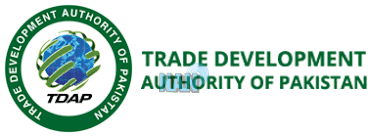Exclusive interview with Josiah Edmond, Director of Strategy & Sr. Supply Chain Consultant, Smyna Supply Chain Consulting. Smyna is an exhibitor at the upcoming Nigeria Manufacturing Expo in Lagos in March.
independent consulting firm specializing in supply chain management and strategy. We recently had the opportunity to speak with Josiah Edmond, the Director of Strategy and Senior Supply Chain Consultant at Smyna Supply Chain Consulting, about Nigeria’s potential as a manufacturing hub and the challenges it faces. Here are some highlights from the interview:
Q: Mr. Edmond, thank you for joining us. Can you tell us more about Nigeria’s potential as a manufacturing hub?
Josiah Edmond: Nigeria has the potential to become a significant manufacturing hub in the future. The country possesses abundant natural resources, a large and youthful population, and a strategic location in West Africa. These factors create a favorable environment for attracting investment in manufacturing and establishing a strong industrial base.
Q: What are some of the notable developments that indicate Nigeria’s growing recognition as a manufacturing hub?
Josiah Edmond: There have been some encouraging signs in recent years. Reputable international entities, such as multinational corporations and industry associations, have begun to recognize Nigeria’s potential as a manufacturing destination. This recognition is reflected in the increasing number of foreign companies setting up manufacturing operations in the country. Additionally, the Nigerian government has been implementing policies and incentives to attract investment in manufacturing and industrial development.
Q: What are the key challenges that need to be addressed to fully unlock Nigeria’s potential as a manufacturing hub?
Josiah Edmond: While Nigeria has made progress, several challenges still need to be addressed. One of the primary challenges is the inadequate infrastructure, including transportation networks, power supply, and logistics capabilities. These infrastructure deficiencies can hinder the efficient movement of goods and increase production costs. Additionally, there is a need to enhance the ease of doing business by streamlining bureaucratic processes and improving regulatory frameworks.
Another critical challenge is the need to develop a skilled workforce. To become a manufacturing hub, Nigeria must invest in education and vocational training to equip its population with the necessary skills for the industry. Moreover, addressing issues related to security, corruption, and political stability is crucial to instill confidence in potential investors.
Q: What steps can be taken to overcome these challenges and propel Nigeria’s manufacturing sector forward?
Josiah Edmond: To overcome these challenges, it is essential to adopt a multi-faceted approach. Firstly, the government needs to prioritize infrastructure development by investing in transportation networks, power generation, and improving logistics capabilities. Public-private partnerships can be leveraged to accelerate infrastructure projects.
Secondly, there should be a focus on human capital development. Collaborations between educational institutions and industry players can help design curricula that align with the needs of the manufacturing sector. Vocational training programs and apprenticeships can also play a crucial role in building a skilled workforce.
Lastly, addressing issues of security, corruption, and political stability requires concerted efforts from the government, law enforcement agencies, and the society at large. Implementing transparent governance systems, strengthening law enforcement, and promoting a culture of integrity are important steps in this direction.
Q: What are your final thoughts on Nigeria’s potential as a manufacturing hub?
Josiah Edmond: Nigeria has all the necessary ingredients to become a manufacturing hub of the future. With its vast resources, strategic location, and a growing recognition from international entities, the country is on the right track. However, concerted efforts are needed to address infrastructure gaps, develop a skilled workforce, and create an enabling business environment. By focusing on these areas, Nigeria can unlock its full potential and emerge as a key player in the global manufacturing landscape.
This concludes our exclusive interview with Josiah Edmond, Director of Strategy and Senior Supply Chain Consultant at Smyna Supply Chain Consulting. We thank Mr. Edmond for sharing his valuable insights on Nigeria’s potential as a manufacturing hub.


























